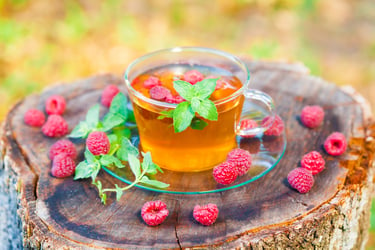eStoreRx™
Online Supplement Dispensary
eStoreRx™ is an easy direct-to-patient ordering & fulfilment program for lifelong wellness.
For over 40 years, Biotics Research Corporation has revolutionized the nutritional supplement industry by utilizing “The Best of Science and Nature”. Combining nature’s principles with scientific ingenuity, our products magnify the nutritional
eStoreRx™ is an easy direct-to-patient ordering & fulfilment program for lifelong wellness.
Biotics Research is proud to expand our commitment to education with the Wellness Unfiltered Pro Podcast. Each episode delves into key health topics and the clinical applications of our premier products. Through candid, insightful conversations, our team offers practical guidance to keep you informed and empowered as a healthcare professional.
February 03 2026
From bodybuilders looking to bulk up to everyday folks trying to drop a few pounds, people have practiced tracking their food for decades. Tracking ca...
 We are all familiar with zinc as an essential mineral for a strong immune system. Although zinc has many benefits, in order for it to get into the cells where it can be utilized most effectively, it needs assistance from substances called ionophores.
We are all familiar with zinc as an essential mineral for a strong immune system. Although zinc has many benefits, in order for it to get into the cells where it can be utilized most effectively, it needs assistance from substances called ionophores.
Ionophores are fat-soluble molecules that bind to ions to help move them across cell membranes. Without the right ionophore, elemental zinc is poorly absorbed and will remain stuck in the bloodstream where it cannot be used by the body’s cells.
Many substances can act as ionophores for zinc, one being the antioxidant quercetin. Thus, taking quercetin along with zinc may provide additional benefits to an immune-boosting protocol.
Zinc Deficiency During Illness
Zinc is the structural element of many molecules that play a role in immunity. It also helps regulate antioxidant balance, reducing oxidative stress within the cell. This important trace element also has extensive antimicrobial activity within the cell. It can act upon a variety of different viruses, helping the body effectively fight them off.
During times of illness, since zinc plays such an important role in immune function, the body uses up its current stores of zinc, leading to zinc depletion.
A zinc deficiency may result in increased inflammation and oxidative stress, making it more difficult to fight off the original illness. Many of the complications related to severe illness are exacerbated by zinc deficiency.
Symptoms of zinc deficiency include loss of appetite, extreme fatigue, weight loss, and poor wound healing. Interestingly, these are many of the symptoms experienced when fighting off a viral infection.
It is critical to consume adequate amounts of zinc from food. Zinc supplements are not recommended for longer than a few weeks because too much zinc may lead to a deficiency in other minerals, such as copper.
Foods high in zinc include:
The elderly are particularly at risk for zinc deficiency and the immunity problems that can accompany it. Stomach acid decreases as we age, which leads to decreased zinc absorption. Many older adults may also find it challenging to consume zinc-rich meats due to dental or chewing issues, as well as aversions to these foods The increased risk of zinc deficiency in the elderly may be correlated to challenges they experience fighting off common viral illnesses.
Quercetin
The flavonoid quercetin, which is found in many fruits and vegetables, has been shown to support a healthy inflammatory response. Several studies have found a connection between a diet high in flavonoids, like quercetin, and a decreased risk of chronic disease.
Quercetin, like zinc, also has antiviral properties and has been found to be effective against herpes and respiratory illnesses.
Good sources of quercetin include:
Quercetin and Zinc for Immunity
Zinc and quercetin work together in the body. Quercetin helps enhance the absorption of zinc, and both have similar antiviral functions. Zinc is a positively charged ion. This makes it difficult for it to penetrate the fat soluble cell membrane, as they are not permeable to positively charged ions. This means that zinc needs a transporter to cross the cell membrane. Many fat-soluble nutrients can do this, including curcumin and EGCg. But quercetin seems to be particularly useful as a zinc ionophore. It may also enhance the antiviral activities of zinc.
How can you optimize the immune boosting relationship between zinc and quercetin?
Although supplements may be essential during an active illness, the first place to start is to support the immune system with food. One way to do this is by including foods that are rich in zinc and quercetin.
This might include adding food pairings such as:
Although these foods don’t necessarily have to be consumed at the same meal all the time, being aware of which foods contain each nutrient is a great way to plan healthy meals.
Related Biotics Research Products:
Submit this form and you'll receive our latest news and updates.
*These statements have not been evaluated by the Food and Drug Administration. This product has not intended to diagnose, treat, cure, or prevent any disease.
© 2025 Biotics Research Corporation - All Rights Reserved
Submit your comment